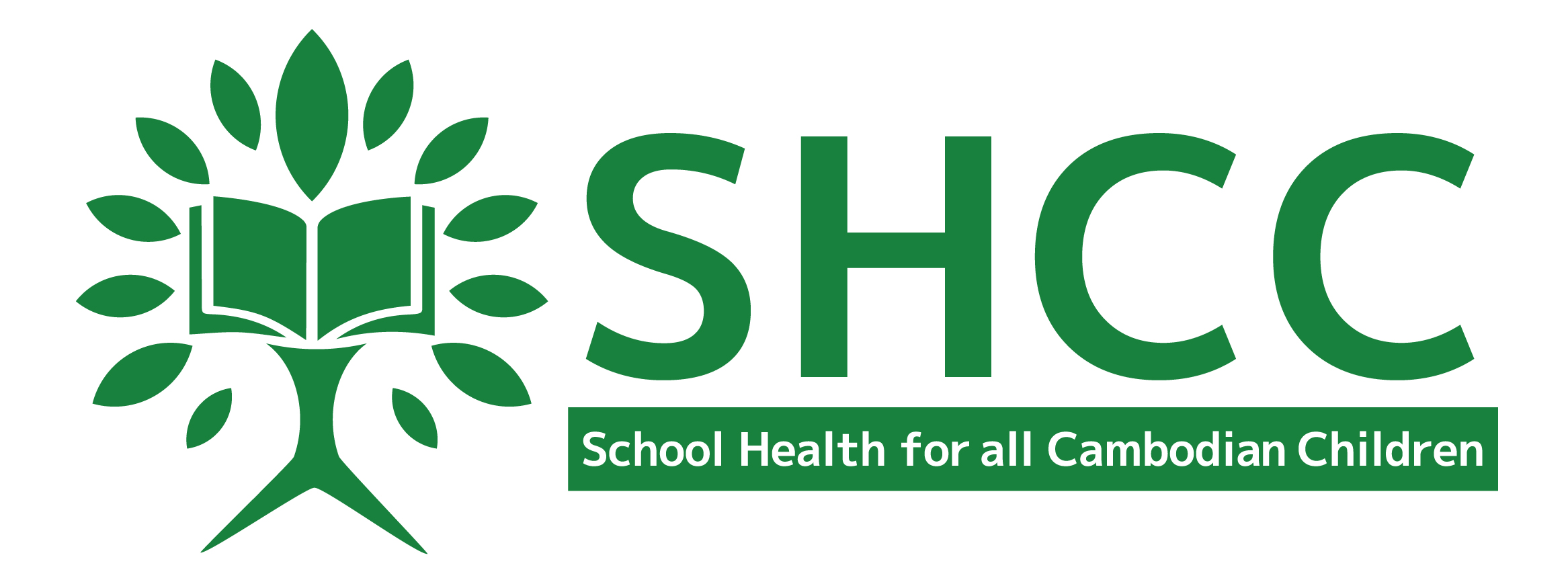A study tour is conducted in March during the university’s spring break, where participants actually travel to Cambodia. During the tour, participants from Tokyo Gakugei University(TGU) interact with students from Teacher Education Colleges (TECs) in Cambodia and visit affiliated primary schools to observe firsthand the current state of school health. This direct experience fosters deeper learning.
It is also a valuable opportunity to gain a deeper understanding of Cambodia by visiting famous historical sites such as Angkor Wat and trying local Khmer cuisine.
By going to Cambodia in person, participants can directly experience the society, culture, daily life, and people, allowing them to learn about diverse values.
Voices from participants

My experience and growth during the Cambodia Study Tour
During this study tour, we not only interacted with Teacher Education Colleges (TECs) students and provided health guidance to TEC’s affiliated elementary school students, but also learned about Cambodian culture and history.
On the third day, during the activity with Battambang Teacher Education College (BTEC) students, I felt frustrated because I couldn’t communicate well due to my poor English. However, I couldn’t just do nothing because I couldn’t speak English well, so I made an effort to convey what I wanted to say in gestures and simple English.
I was very happy when I could communicate well with TEC students as a result of my efforts.
However, during health instruction at BTEC’s affiliated elementary school, we faced one issue. We hadn’t clearly communicated our teaching plan to the BTEC students the day before, so we had trouble with the introduction. Since we don’t speak Khmer, we thought we would leave health guidance to the BTEC students and we would support them. Unfortunately, that wasn’t clearly communicated to them.
Through this experience, we realized it wasn’t a good idea to leave them to all health guidance because it was their and our health guidance. Based on this realization, we changed our method of teaching at the Phnom Penh Teacher Education College (PTEC)’s affiliated primary school.
We asked the PTEC students to translate what we taught in English during the introduction. In addition, the day before health guidance, we gave the mock lesson so that the PTEC students could easily visualize how to carry out the health guidance. With a common desire to improve health guidance, it was greatly improved in a short period of preparation by working together with other TGU students.
The happiest moment of this study tour was when I was able to communicate directly with the children during health guidance, even without the help of TEC students. I realized that I was able to overcome the language barrier and truly understand the joy of communication.
I was also deeply touched by the children’s cheerful smiles and how welcoming they were, even though we couldn’t speak their first language. It reminded me how much I love interacting with children. I also realized that teachers are special people who can be right there beside a child’s smile.
I experienced many other things besides activity at TEC. Shopping at the market and watching the circus at the circus school gave me an opportunity to think about the culture and background of Cambodia. It was an opportunity to experience the different character, culture and environment from Japan and to learn more about the world.
I wasn’t able to be proactive in Japan due to my negative thinking personality, but thanks to the exchange with TEC students in Cambodia, I think I was able to break out of my shell and grow. I will cherish my experiences and feelings in Cambodia and continue to grow.(W.M)
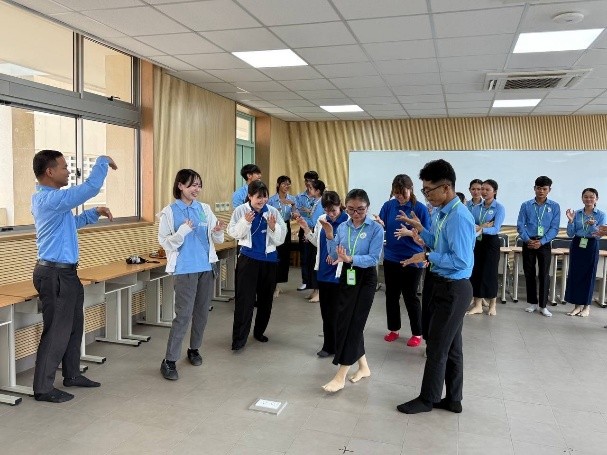
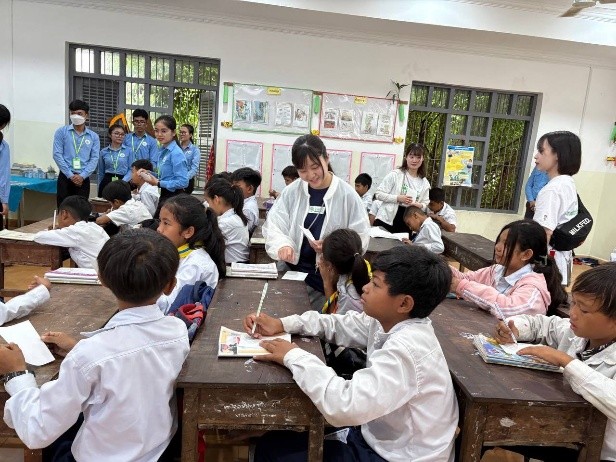
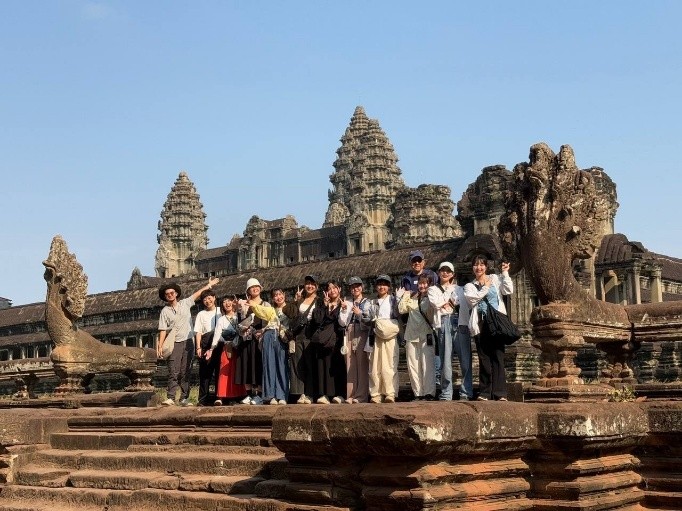
Cambodia
This study tour was my first overseas. I was able to have a lot of thoughts and experiences that I can’t feel in Japan, and it was a valuable experience.
What impressed me in particular was the interaction with students and the health guidance we did in primary school.
In the exchange with students, in addition to communicating about the contents of health guidance, we talked about various things such as the culture and education of each other’s countries. For me, who is not good at even speaking Japanese when meeting for the first time, it was very difficult to talk to people for the first time in English, but even in simple English, the other person understands and communicates with the other person by reacting greatly. I was able to do it. And until then, I realized that English was something to study, but through student exchanges, I strongly felt that English is a communication tool. I was not good at speaking English, but when I was talking to Cambodian students, I realized the fun and fun of talking that I don’t usually feel.
In the health guidance conducted in primary school, under the theme of exercise habits, we conveyed the importance of exercise to primary school students through Japanese radio exercise. It was difficult to teach children who couldn’t understand Japanese. I was able to finish the class safely while doing my best to learn a simple Khmer language and speak it to the children, and try to make my movements bigger. This was the first class in my life to teach health at primary school.
I think that the experience of teaching at this time of the first year of college will be very useful when actually dealing with children, such as educational practice, in the future. (O.K)
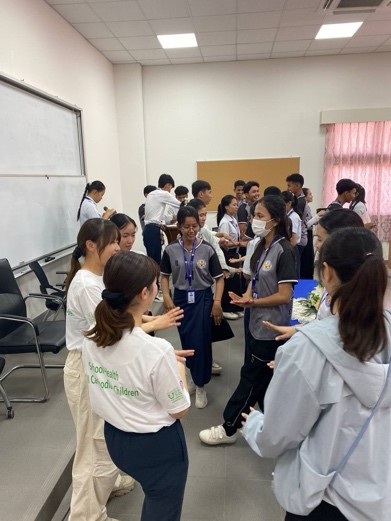
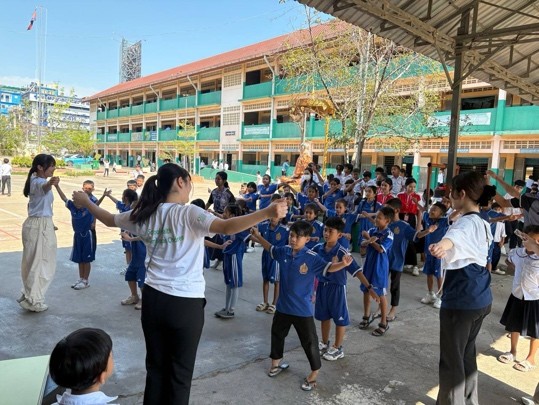
Presentation Materials for the Cambodia Study Tour by Students
Click the link below and you can see the presentation by students.
